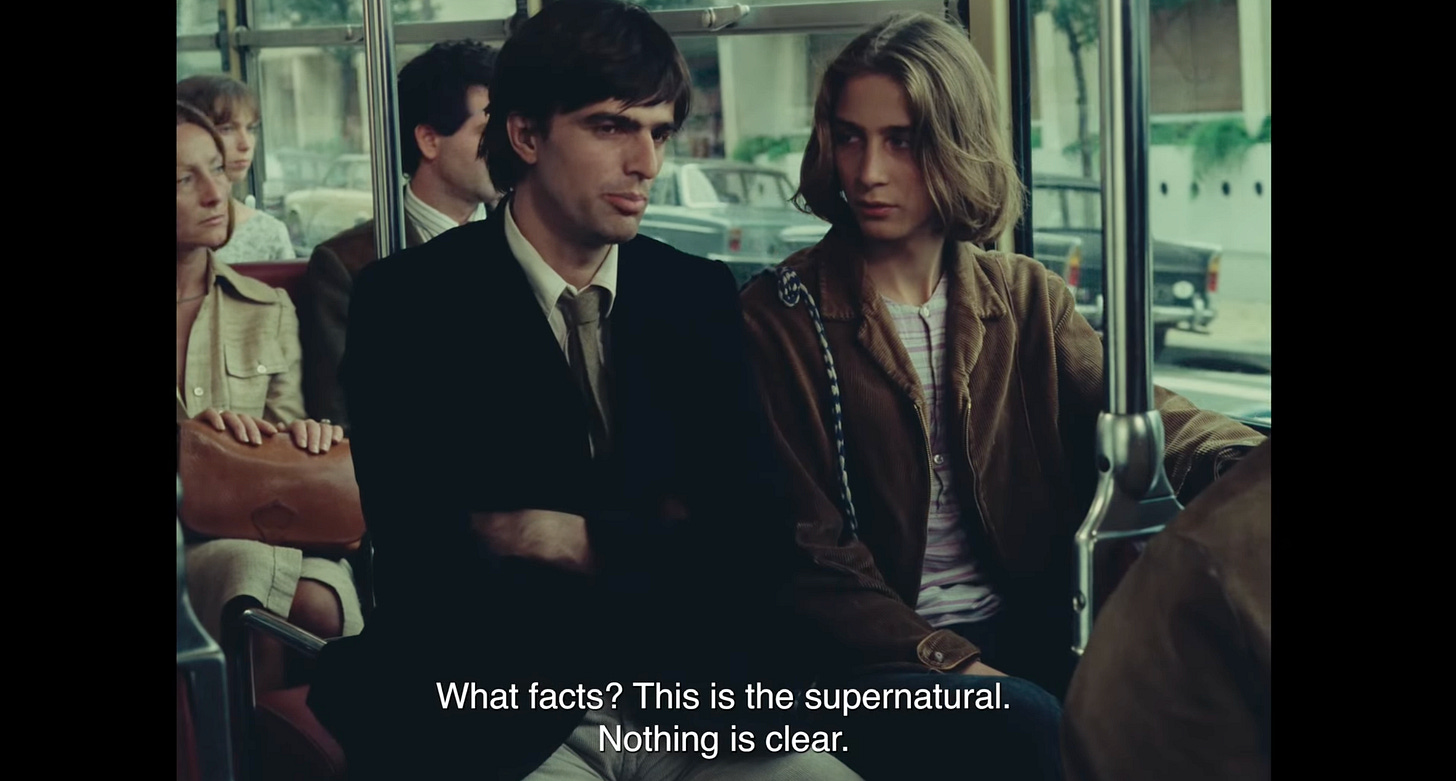Today begins a new series for subscribers on PLUTO in astrology, myth, culture—planet and force—as Pluto is on a precipice, sitting at the final degree of Capricorn, re-visiting this arena for the last time in our lifetime, through November 19th, when it enters Aquarius. Pluto will be in Aquarius until 2044. “Pluto, it would seem,” writes Liz Greene in The Astrology of Fate, “governs that which cannot or will not change. This is a particularly painful issue in an age of self-help and a growing belief that one can make oneself into anything, given the right techniques, books, or spiritual leaders.”
Pluto, as glacially slow outermost (astrological) planet, can help us think about long cycles and eras. Since 2008, Pluto has been moving through Capricorn and we are coming then, in a sense, to the end of an era. In this series, I’ll be looking back at the Pluto in Capricorn years and forward to Pluto in Aquarius. Topics may include doubles, Pluto in literature, psychoanalysis, transparency, Plutonic movies and clues, technology, elections, secrets, and more. I’ll post a few times a week, though I’m not sure exactly where we’ll go. Now until….question mark. Cosmic Edges, in the underworld. Please subscribe for full access, including today’s long swirly first post on Pluto, screens, and a secret link between Fassbinder’s Third Generation (1979) and Bresson’s The Devil, Probably (1977), below:
“Why speak to each other, when it is so easy to communicate?” — Baudrillard
In an arena of smooth screens and flattened thresholds, how do we know when we’ve slipped…entered the realm of Pluto…the underworld? During the opening credits of Fassbinder’s The Third Generation (1979): a portal into Bresson’s The Devil, Probably (1977). At first, a seemingly clear, unobstructed view of cityscape. As the camera pulls back….





